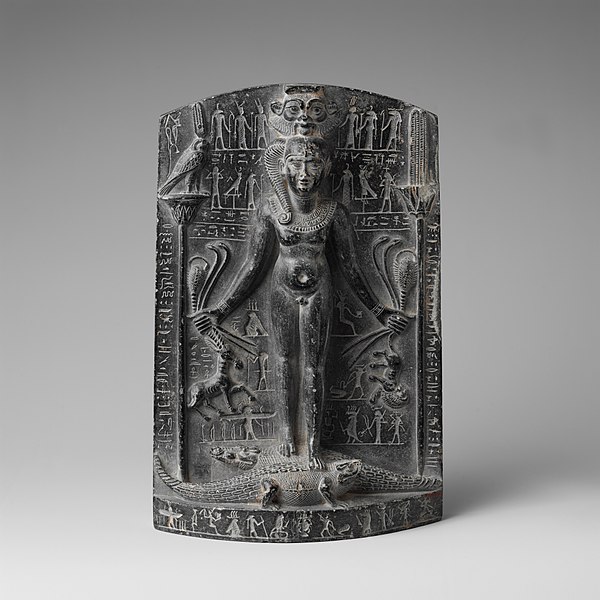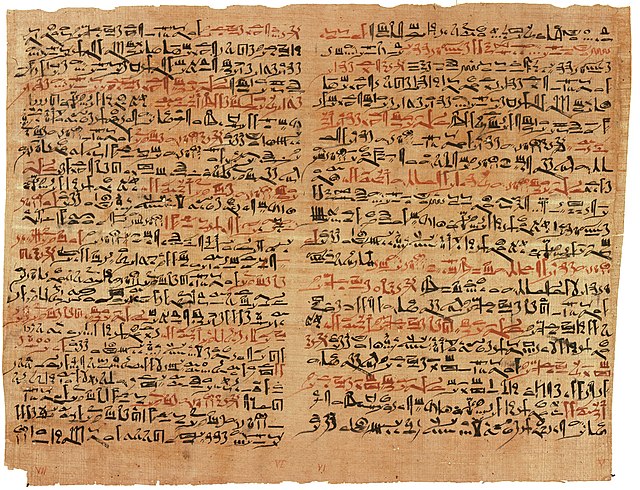The history of medicine is both a study of medicine throughout history as well as a multidisciplinary field of study that seeks to explore and understand medical practices, both past and present, throughout human societies.
A 12th-century manuscript of the Hippocratic Oath in Greek, one of the most famous aspects of classical medicine that carried into later eras
Yarrow, a medicinal plant found in human-occupied caves in the Upper Palaeolithic period.
A cuneiform terracotta tablet describing a medicinal recipe for poisoning (c. 18th century BCE). Discovered in Nippur, Iraq.
Magical stela or cippus of Horus inscribed with healing encantations (c. 332 to 280 BCE).
Ancient Egyptian medicine
The medicine of the ancient Egyptians is some of the oldest documented. From the beginnings of the civilization in the late fourth millennium BC until the Persian invasion of 525 BC, Egyptian medical practice went largely unchanged and included simple non-invasive surgery, setting of bones, dentistry, and an extensive set of pharmacopoeia. Egyptian medical thought influenced later traditions, including the Greeks.
The Edwin Smith Papyrus documents ancient Egyptian medicine, including the diagnosis and treatment of injuries.
Ebers Papyrus treatment for cancer: recounting a "tumor against the god Xenus", it recommends "do thou nothing there against"
Ancient Egyptian medical instruments depicted in a Ptolemaic period inscription on the Temple of Kom Ombo.
This wood and leather prosthetic toe was used by an amputee to facilitate walking








